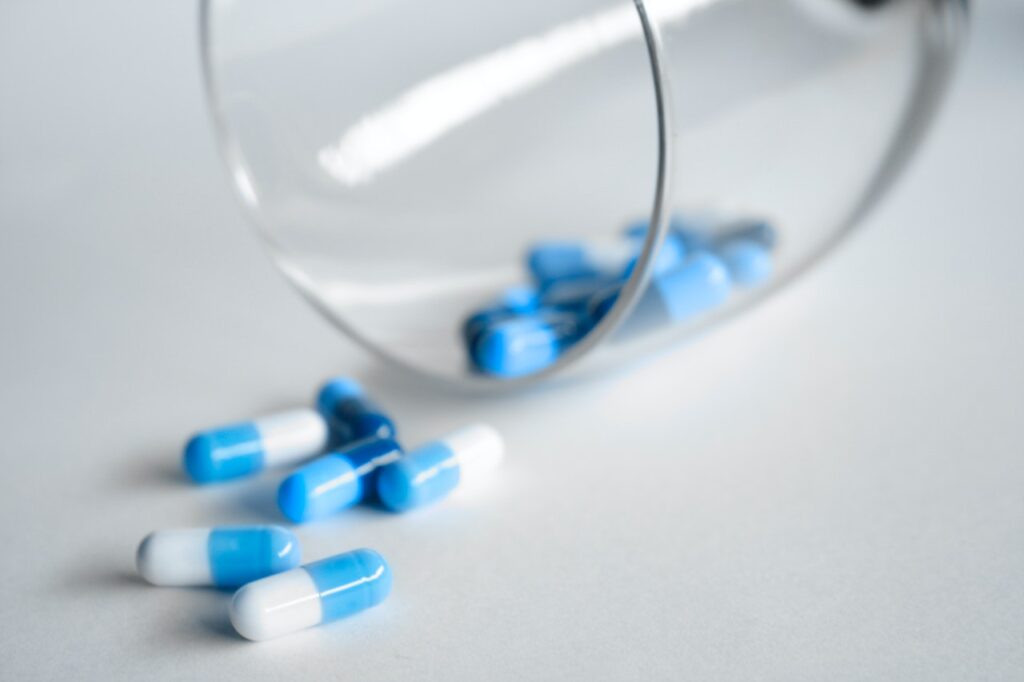Drug and Alcohol Rehab in Argyll
The effects of drug and alcohol addiction are widespread throughout the United Kingdom and Scotland. In Scotland, there were 1,339 drug-related deaths in the year 2020.
This statistic was the highest recorded in a year. Although 2021 saw fewer deaths with 1,330 deaths due to drug use, this was the second-highest year when it came to drug-related deaths in Scotland.
Not only is Scotland facing a problem with drug and alcohol use, but its recent history shows that the problem is more prominent than ever.
Argyll (and Argyll & Bute) is not an exception to these problems, as it deals with the effects of substance addiction much like the rest of the country.

- Findings from a study conducted in 2019 show that 13-year-olds in Argyll had already been exposed to alcoholic substances, with 44% reporting that they had already consumed a full alcoholic beverage in the past.
- Furthermore, 13% of 13-year-olds reported that they had been drunk more than 10 times in the past. Additionally, 26% of 13-year-olds in Argyll reported that they had previously been offered drugs.
- Children in the areas in and around Argyll are exposed to the effects and dangers of drug and alcohol consumption, whether or not they seek to engage in these intoxicating substances.
- Argyll also experienced around 27.8 deaths per 100,000 people per year due to excessive alcohol consumption. Much like most of the alcohol-related deaths in the country, the majority were linked to Alcoholic Liver Disease.
- Additionally, the same study showed that there was a rate of 672.4 alcohol-related hospital admissions and a rate of 97.4 drug-related hospital admissions per 100,000 people in Argyll in the year 2018.
- 2019 was not dissimilar, as Argyll saw a rate of 16.3 people per 100,000 dying due to alcohol-specific conditions. This year also saw 121.1 per 100,000 being admitted into hospital due to drug-related illnesses and injuries in Argyll, a significant increase from the year 2018.
Admissions Process: Finding a Rehab Programme in Argyll

If you are suffering from a drug or alcohol addiction and require addiction treatment in Argyll, you can contact Rehab Recovery.
At Rehab Recovery, our experienced and dedicated staff, whose responsibilities are to help you navigate the admissions process and initiate your journey to recovery, will help you every step of the way.
Call us by dialling the number 0800 088 66 86 from the United Kingdom or dial +44 330 333 6197 internationally, and we can help you with being admitted into a drug and alcohol rehab in Argyll.
When you reach out to us, you will be greeted by a friendly and experienced admissions officer. This admission officer’s priority is to help you answer a range of concerns and questions that you may have about the rehab programme.
Only once you are ready will we ask you to complete a health assessment, also known as the pre-admission assessment, to initiate your recovery journey.
These assessments are very simple and can be completed over the telephone, free of charge. They merely consist of a few questions regarding the subject’s addiction history, physical and mental health, medical history, personal requirements, and so on.
With this information (which will not be shared with anyone other than addiction specialists), specialists in addiction work will determine the most optimal treatment plan and rehab facility which will maximise your recovery.
Is Addiction a Disease or a Lifestyle?

There are some harmful stigmatizations surrounding addiction. Some people will argue that it is not an illness, but a choice or a lifestyle. Others may argue that because people choose to consume drugs or alcoholic substances in the first place, it was their choice to become dependent.
However, neuroscientific evidence and models developed by neuroscientists – such as the brain disease model of addiction – point towards drug and alcohol addiction or substance use disorder as a brain disease of chronic relapsing.
According to the brain disease model of addiction, when someone is suffering from addiction to drugs or alcohol, there are physiological and neurological changes which occur in their mind and body.
In our brains are reward pathways (also known as mesolimbic pathways), which are responsible for releasing dopamine and experiencing pleasure. When someone is addicted to substances, these reward pathways will have been altered in a way which makes them dependent on intoxicating substances to produce dopamine.
Drug and Alcohol Addiction Symptoms

When they are abstaining from their addictive substances, they will experience a range of physical and psychological cravings, otherwise known as withdrawal symptoms.
These can be mild or severe, and if a subject is extremely dependent on a dangerous substance, withdrawal symptoms could kill them. Because of this, some patients will need to undergo a medicated detox to recover from their addiction symptoms safely.
- Some of the physical withdrawal symptoms which can cause severe discomfort to include headaches, vomiting, diarrhoea, lethargy, fatigue, trembling, seizures, strokes, and more.
- Psychological withdrawal symptoms can be severe, but cannot kill patients directly as physical withdrawal symptoms can. Examples of psychological withdrawal symptoms include insomnia, anxiety, paranoia, bipolar disorder, erratic behaviour, depression, hallucination, and more.
- Addiction symptoms are not restricted to withdrawal symptoms. Frequently and excessively consuming intoxicating substances which are carcinogenic can lead to the development of cancers.
- Many people who consume alcohol even moderately develop liver problems in the long term. Liver disease is the leading cause of preventable death in the United Kingdom, and 90% are attributed to alcohol consumption habits.
Abstaining from drugs and alcohol can reverse much of the damage caused by these toxic substances. However, there can be a point of no return, especially for those whose health status is already compromised.
It is important to seek professional help for your drug and alcohol addiction as soon as possible to reverse and prevent further, irreversible damage.
Drug and Alcohol Rehab in Argyll: Inpatient & Outpatient Treatment

When choosing to enter a rehab facility in Argyll, patients can choose to enter rehab as an inpatient or an outpatient. There are significant differences between the two which are important for patients to understand before they enter their drug and alcohol rehab in Argyll.
Outpatient Treatment at a Rehab in Argyll
As an outpatient at rehab in Argyll, patients will spend around 4 to 6 hours per week undergoing therapy and counselling sessions at their rehab facility, while being able to return home each night. Outpatient care is usually free of cost for patients.
Sessions usually accommodate the working schedule, meaning that patients can maintain employment or their studies throughout recovery. However, outpatients who are undergoing the intensive programme may attend up to 30 hours of therapy and counselling per week to optimise their recovery.
While this option is flexible and cost-free, it requires patients to attend recovery for a longer period. Because it lacks the intensiveness of inpatient programmes, patients need to continue attending therapy and counselling sessions for months.
Inpatient Treatment at a Residential Rehab in Argyll
As an inpatient at a residential rehab, patients will not only receive swift admission into treatment but will also undergo an intensive and personalised recovery programme.
Residential care optimises the patient’s recovery far more than outpatient treatment, and this is especially effective in treating patients who suffer from severe forms of addiction and other complications such as mental health issues.
At a residential rehab, patients will be able to undergo a medicated detox which typically lasts around 7 to 10 days to overcome their symptoms. Then, they can proceed to undergo a range of therapeutic approaches, counselling sessions, and relapse prevention planning strategies.
Post-Rehab Life: Aftercare in Argyll

Although patients will overcome their withdrawal symptoms at rehab in Argyll, they will need to understand how to maintain their sobriety in preparation for leaving rehab. This is why patients will undergo relapse prevention strategies.
Furthermore, after rehab, patients will continue to receive support in the form of an aftercare programme. This allows patients to continue undergoing treatment, attend support sessions, and join fellowship programmes such as Alcoholics Anonymous, Narcotics Anonymous, SMART Recovery, and more.
Former patients will also receive support in the form of a 12-Step Programme, which is a highly popular active engagement strategy for sustaining a lifestyle of abstinence and optimised health after having recovered from addiction. These services are designed to sustain lifelong recovery.
Therapeutic Approaches at a Drug and Alcohol Rehab in Argyll

A range of therapeutic methods is implemented on the path to recovery at rehabilitation centres.
Since there are so many variables associated with addiction, such as different substances, causes, levels of severity, symptoms, and so on, there needs to be a wide range of treatment options available to cater to different patients.
- Cognitive Behavioural Therapy (CBT): CBT is one of the most effective and popular methods of therapy because it helps patients not only identify but address their counterintuitive and self-destructive habits. Some of these habits may be related to cognitive distortion, self-loathing, suicide ideation, magnification (making issues appear worse than they are), and so on. CBT is also used to treat a range of mental health conditions such as depression.
- Dialectical Behavioural Therapy (DBT): Similarly, DBT is a branch of CBT, but it places more stress on helping patients experiencing intense thoughts and feelings. Typically, patients undergoing DBT are those who suffer from symptoms of anxiety, bipolar disorder, trauma, and so on. Both CBT and DBT help patients rationalise their condition and proceed with their recovery in a rational mindset.
- Family Therapy: Not only does the addicted person receive treatment, but his or her family may be involved. Educating and treating the family of the addicted person can reinforce the patient’s immediate support network thoroughly. By offering family counselling services and sessions to allow them to understand their loved one’s addiction, they will be in a better condition to help manage their loved one’s recovery.
- Group Therapy: Group therapy offers a range of benefits which go beyond one-to-one talking therapies. Some of the benefits of group therapy include combating social isolation, facilitating peer discussion and social reinforcement, creating a sense of community and support network, and more. Patients will have the opportunity to share their experiences, whether positive or negative and to resonate with other patients.
- Holistic Therapy: Holistic Therapy is a unique form of therapy because it factors in the physical and spiritual aspects of patients, in addition to their mental health. Activities related to holistic therapy may not directly address symptoms of addiction, however, it facilitates recovery from addiction because it can improve the overall well-being of patients. Activities include but are not limited to equine therapy, art therapy, yoga, tai chi, massages, mindfulness, music therapy, aromatherapy, acupuncture, and more.
References
[1] Drug Related Deaths in Scotland in 2020, Report https://www.nrscotland.gov.uk/files/statistics/drug-related-deaths/20/drug-related-deaths-20-pub.pdf
[2] Drug Related Deaths in Scotland in 2021, Report https://www.nrscotland.gov.uk/files/statistics/drug-related-deaths/21/drug-related-deaths-21-report.pdf
[5] https://www.hazeldenbettyford.org/research-studies/addiction-research/brain-disease-model
[6] Alcoholics Anonymous – Rehab Recovery https://www.rehab-recovery.co.uk/addiction-treatments/alcoholics-anonymous/
[7] What is Narcotics Anonymous? – Rehab Recovery https://www.rehab-recovery.co.uk/addiction-treatments/narcotics-anonymous/
[8] SMART Recovery: What Is It and How Can It Help? https://www.rehab-recovery.co.uk/addiction-treatments/smart-recovery-what-it-is-and-how-it-can-help/
[9] Cognitive Behavioural Therapy in Addiction Treatment – Rehab Recovery https://www.rehab-recovery.co.uk/addiction-treatments/cognitive-behavioural-therapy/
[10] Dual Diagnosis: Depression – Rehab Recovery https://www.rehab-recovery.co.uk/addiction-treatments/dual-diagnosis/depression/
[11] DBT for Addiction Treatment – Rehab Recovery https://www.rehab-recovery.co.uk/addiction-treatments/dbt/
[12] Bipolar Disorder and Addiction – Rehab Recovery https://www.rehab-recovery.co.uk/addiction-treatments/dual-diagnosis/bipolar-disorder-addiction/
[13] Dual Diagnosis: Anxiety – Rehab Recovery https://www.rehab-recovery.co.uk/addiction-treatments/dual-diagnosis/anxiety/
[14] Dual Diagnosis: PTSD – Rehab Recovery https://www.rehab-recovery.co.uk/addiction-treatments/dual-diagnosis/ptsd/
[15] Alternative & Holistic Therapy for Addiction – Rehab Recovery https://www.rehab-recovery.co.uk/addiction-treatments/alternative-holistic/


